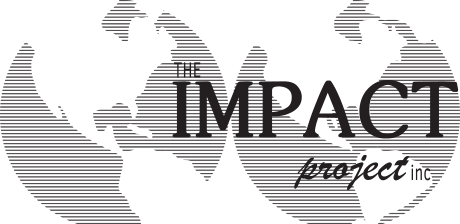

School Justice Panels
A preadjudicatory, school based, mental health diversion program
School Justice Panels were developed in Lehigh County, for the Allentown Public School District Middle Schools. The MacArthur Foundation grant phase of the program was a partnership between The IMPACT Project, Inc. and Lehigh County Juvenile Probation from July 2009 through June 2011. Since then, Lehigh County JPO has funded the continuation of program because of the outstanding outcomes produced during the grant. The program was designed to specifically address first time offending students and their families. Instead of sending the student through the court system, law enforcement officials have the opportunity to allow the student to avoid court. The youth are instead referred to our School Justice Panels where we first determine whether there are underlying mental health, drug and alcohol, or family issues prevalent. Using clinical assessment and screening tools, SJP clinicians provide the information and have the means to assess underlying mental health issues that the schools often lack the resources to investigate.
Creating a school environment that is free of violence has become a national issue as educators look to encourage learning in safe environment while ensuring that each child has the opportunity to reach their full academic potential. The breakdown of familial systems, coupled with schools “zero tolerance” to violent or drug related infractions, has threatened the potential for some students to be able to be successful within the public school system as more children at younger ages are identified with greater physical, social, and emotional learning barriers.
The concept of “zero tolerance” has some educators concerned that children are paying too high a price for mistakes that at one time may have been considered a developmental right of passage. Many children today do not have the support, guidance, or resources to learn from their mistakes or overcome underlying mental health concerns that may be contributing to these delinquent behaviors. The children who at one time may have been sent to administration to have their parents called to school, are now being referred to the court systems in order to maintain levels of discipline once handled by the school and family members.
The courts are outstanding at holding the youth accountable, but often lack the resources to investigate the underlying issue for early offenders. Without intervention that addresses the root of the problem behavior, it is feared that these youth have a high potential to become casualties of our educational system while overloading our juvenile justice system. Our reserch and longitudinal studies have shown that early intervention and diversion will result in effective outcomes that allow the youth to remain in school successfully, avoid the juvenile justice system, and get the necessary help to correct the underlying issues that have created the inappropriate and criminal behaviors.
Professional social service volunteers who comprise the expert panelists, “walk” the student and their family through the process that provides accountability for the infraction. The youth and their family are seen by this panels of professionals representing various social service agencies in Lehigh County. The panel develops a personalized contract of behaviors that a youth must accomplish over the next six weeks that both address restoration of victims, restoration of the community where the crime occurred, and treatment and competency skills acquisition for the youth who offended. The professional panelists use their expertise to assure that the services are established, which increases the success for the students and their families by inviting them to be an integral and positive part of the process. Youth who complete 100% of their contract successfully complete the program. Those that complete less than 100%, fail and are referred to either the Magisterial District Justice or Juvenile Probation which could lead to a juvenile court hearing.
School Justice Panels were designed to provide Lehigh County with another quality diversion program that could help a youth avoid the juvenile justice system while also addressing and diagnosing underlying issues. It was not designed to be punitive, but rather invitational in its approach by allowing the focus to be on the restitution and treatment. When students and their families receive early interventions with positive results, both the student and the extended family retain the benefits as it becomes incorporated into the structure within the home. In this way, the family positively interacts with the needs of the identified student with residual benefits affecting other siblings in the home. Furthermore, if significant underlying issues are discovered, the panels refers the youth to a more appropriate social service agency with Lehigh County who can continue providing intervention after completion of the panel process.
We have taken step back into time by again inviting the “village” to help in raising the child.

"What lies behind us and what lies before us are tiny matters compared to what lies within us."

